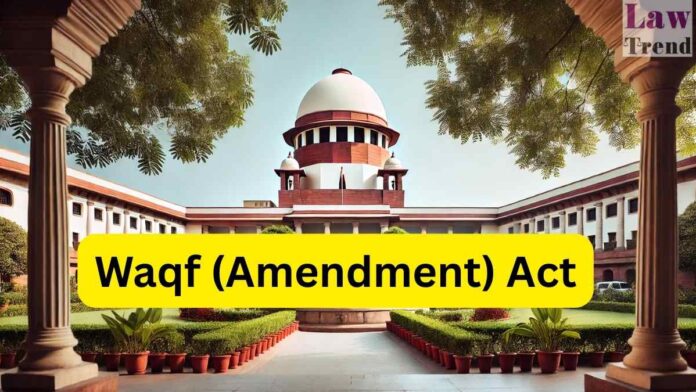The Supreme Court on Wednesday expressed serious concerns over the potential consequences of revoking the long-standing practice of “waqf by user” through the newly enacted Waqf (Amendment) Act, 2025. A three-judge Bench headed by Chief Justice Sanjiv Khanna, and comprising Justices Sanjay Kumar and K.V. Viswanathan, observed that undoing this doctrine “will have huge consequences” and sought detailed clarification from the Centre.
The observations came during the hearing of 73 petitions that challenge the constitutional validity of various provisions of the Waqf (Amendment) Act. The court did not pass any interim order and scheduled further hearings for Thursday.
Key Concern: Revocation of ‘Waqf by User’
The Bench focused extensively on the provision in the new law that effectively denotifies the practice of “waqf by user,” which refers to properties that, although lacking formal documentation, are treated as waqf due to their continuous use for Islamic religious or charitable purposes over time.
“You still haven’t answered the question. ‘Waqf by user’ will be declared or not? That will be undoing something that’s been established. How will you register in the case of waqf by user?” the Bench asked Solicitor General Tushar Mehta, who appeared on behalf of the Union Government.
The Chief Justice pointed out that many mosques built between the 14th and 16th centuries would not have registered sale deeds and could only be recognized based on their historic religious use. Requiring such documentation, the Bench said, would be “impossible.”
Central Provision Under Scrutiny
The Waqf (Amendment) Act contains a clause that disqualifies a property from being considered waqf if an inquiry by the District Collector is pending to determine whether it belongs to the government. The Bench questioned this clause, remarking that such a provision “will not be given effect.”
The Solicitor General argued that the Act does not terminate the usage of such properties, but rather withholds certain waqf-related benefits pending verification. “There’s a shop, temple of waqf. The Act doesn’t say its usage will stop. It says it won’t get benefit unless we decide it,” Mehta said.
To this, Chief Justice Khanna responded: “What will happen then? Where will rent go? Why have that provision then?”
Inclusion of Non-Muslim Members Also Questioned
The Bench also raised pointed queries regarding the inclusion of non-Muslim members in the Central Waqf Council and state waqf boards. The Chief Justice questioned whether the government would permit Muslim members on Hindu endowment boards in return. “Say it openly. Will you allow Muslims to be part of Hindu endowment boards?” he asked.
Despite calls for an interim stay on the controversial provisions, the court refrained from issuing any such relief, noting objections raised by the Solicitor General and counsels representing various state governments. The Bench will resume the hearing on Thursday.




